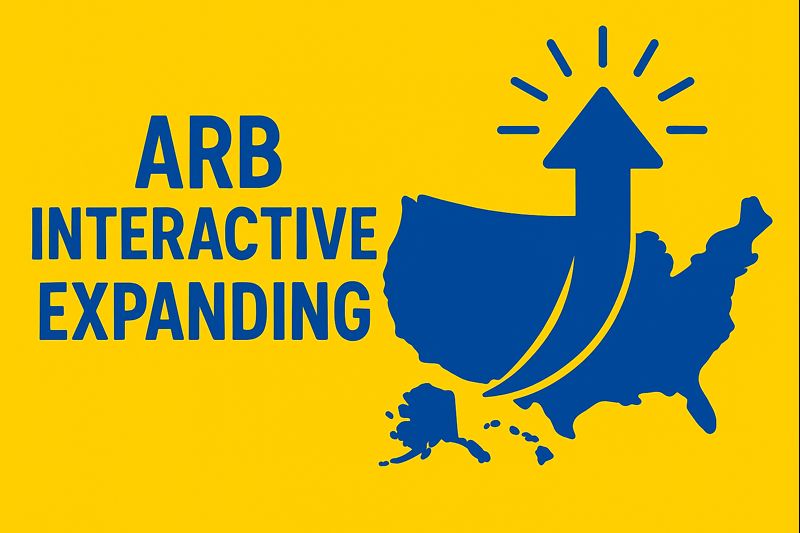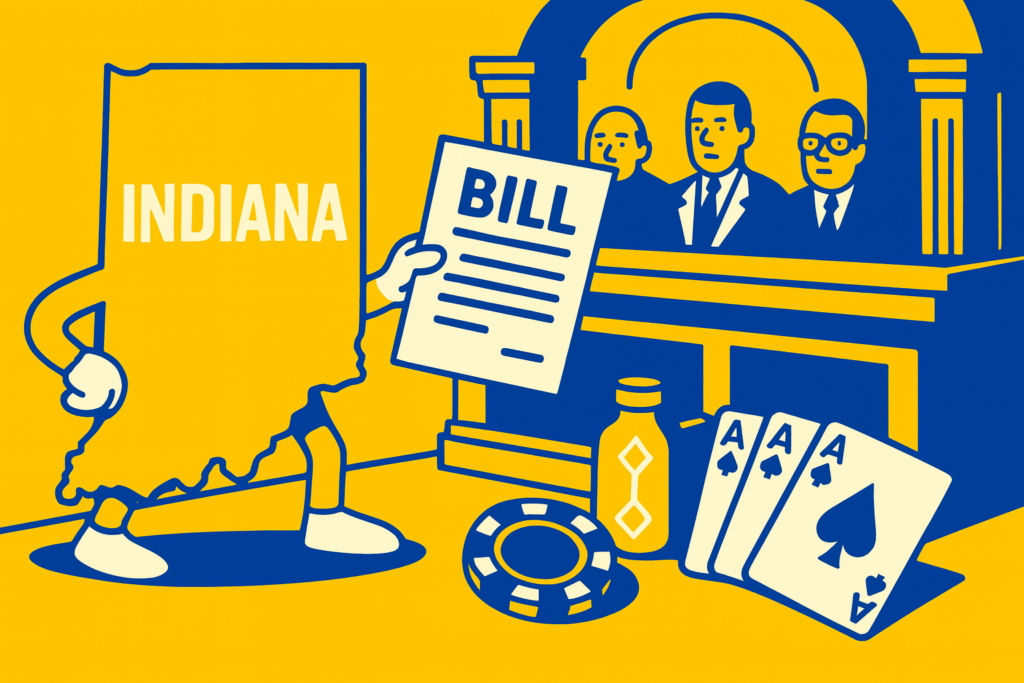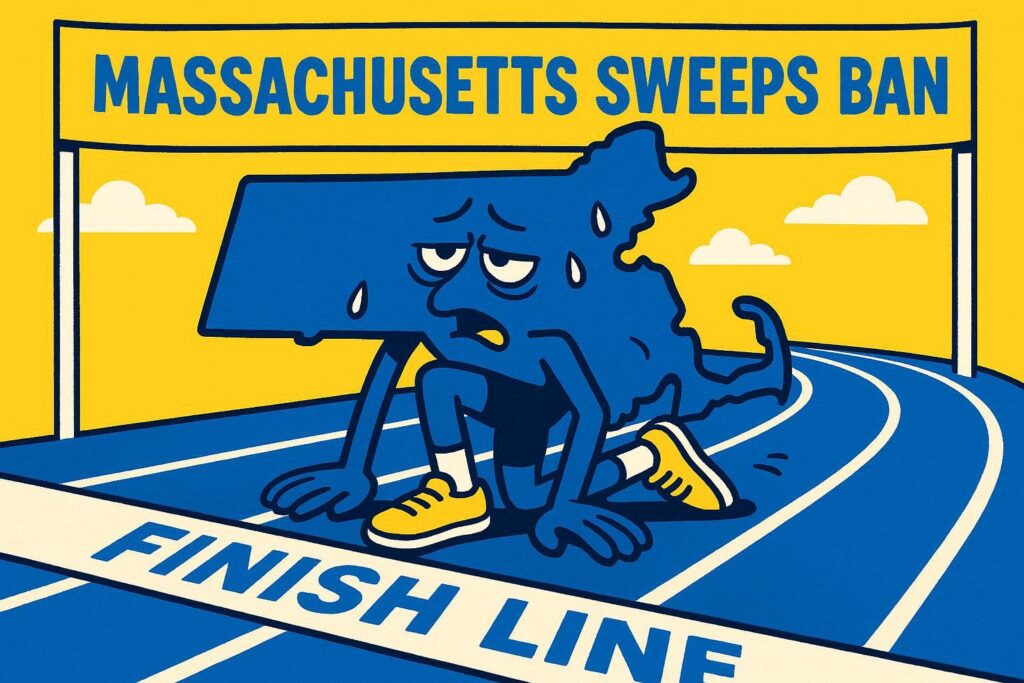It may feel like we’re reading tons of headlines about lawsuits against sweepstakes operators and their dual-currency gaming model.
But have you noticed that … nothing is really happening as a result of those lawsuits?
That’s largely due to very intentional series of clauses in the terms and conditions that (most) players absently sign off on during registration.
It all comes down to arbitration.
Arbitration is a legal process in which an independent third party listens to both sides of a case and then decides what should happen. It happens in private — not in a court — and it’s often less expensive than a lawsuit that’s tried in court. Sometimes it’s even required to be kept confidential.
Sweepstakes operators include in their terms and conditions language that requires legal disputes from players to be resolved by arbitration.
As a result, many lawsuits get bogged down in debates over whether the case should be tried via arbitration … instead of actually debating the legality of the dual-currency model. A recent sweepstakes lawsuit in Georgia bounced back and forth over the issue of whether the player suing VGW Holdings had opted out of arbitration, for instance.
Examples of arbitration clauses
This clause is right at the top of Chumba Casino’s terms and conditions:
“Please note that these terms and conditions include a provision waiving the right to pursue any class, group, or representative claim and requiring you to pursue past, pending, and future disputes between you and us through individual arbitration unless you opt out within the specified time frame.”
Later, in more detail, the terms and conditions state:
“By agreeing to these Terms and Conditions, and to the extent permitted by applicable law, you and VGW Group each and both agree to resolve any Disputes – including any Dispute concerning the enforceability, validity, scope or severability of this agreement to arbitrate – through final and binding arbitration as discussed herein.”
High 5 Casino’s terms and conditions highlight that any arbitration proceedings must be kept private:
“You and H5C shall maintain the confidential nature of the arbitration proceedings and the arbitration award, including the arbitration hearing, except as may be necessary to prepare for or conduct the arbitration hearing on the merits, or except as may be necessary in connection with a court application for a preliminary remedy, a judicial challenge to an award or its enforcement, or unless otherwise required by law or judicial decision.”
High 5 even specifically mentions a class action lawsuit it currently faces in Washington and that “if you accept the terms of use and do not opt out of the dispute resolution by binding arbitration provision, you cannot participate in this lawsuit.”
An early legal leg up for sweepstakes operators
Look up any sweepstakes site’s terms and conditions, and then search for the word “arbitration” — you’ll find it early and often. And, again, these are the same terms and conditions most players don’t spend a millisecond reading as they check all the boxes during the sign-up process.
This gives sweepstakes operators a leg up in any legal proceeding. They’re “ironclad arbitration agreements,” New Jersey resident Julian Bargo wrote in his RICO lawsuit against sweepstakes operators and Apple and Google in late 2024.
Or, as US legal gaming attorney Daniel Wallach noted on LinkedIn:
“From arbitration clauses to jurisdictional defenses, there are procedural challenges every step of the way (in sweepstakes lawsuits),” Wallach wrote after a Georgia court dismissed a class action lawsuit against VGW.
The US Supreme Court weighs in …
These arbitration agreements are certainly ironclad. But they aren’t invincible.
Players may not be subject to an arbitration agreement — even if they signed the terms and conditions — if any subsequent agreement they sign stipulates legal conflicts will be resolved in the courts.
The US Supreme Court heard arguments on this topic last May in Coinbase, Inc. v. Suski.
Coinbase, a digital currency exchange platform, ran a sweepstakes promotion where users entered for a chance to win Dogecoin. The initial user agreement Coinbase users sign includes an arbitration clause.
However, the official rules for the Dogecoin sweepstakes stated that California courts “shall have sole jurisdiction of any controversies regarding (the sweepstakes).”
After the sweepstakes, users filed a class action lawsuit that the sweepstakes violated California’s unfair competition laws. Coinbase argued any legal dispute should be resolved in arbitration due to the clause in the user agreement.
The Supreme Court deemed the official rules for the sweepstakes took precedent over the user agreement and that the California courts had jurisdiction to decide if the case should go to arbitration or not.
In other words: Any agreement a player signs after they’ve signed the terms and conditions will have the legal high ground. So, if a sweepstakes operator includes an arbitration agreement in its terms and conditions but later says legal disputes will be resolved in Florida courts in the official rules for a promotion, that Florida courts stipulation will take precedence — at least for that promotion.
“Therefore, check your User Agreement when drafting Official Rules,” Robert Laplaca, a partner at Verrill, wrote in a May 2024 blog advising sweepstakes operators following the Supreme Court decision. “And either be consistent or understand that you may be changing the terms of the User Agreement by having inconsistent provisions in your Official Rules.”
The opt-out option
Also: Players do have the option to opt out of the arbitration clauses.
From Chumba Casino’s terms and conditions:
“You may decline this agreement to arbitrate by contacting [email protected] within 30 days of first accepting these Terms and Conditions and stating that you (include your first and last name, email address and postal address) decline this arbitration agreement.”
Chumba’s terms go on to say that opting out won’t prevent you from playing any games. You’ll still get the exact same platform access as any other player.
However, if an operator updates its terms and conditions at any time, a player would need to re-opt out of the arbitration clause in those new terms and conditions. That’s an important distinction to note.








